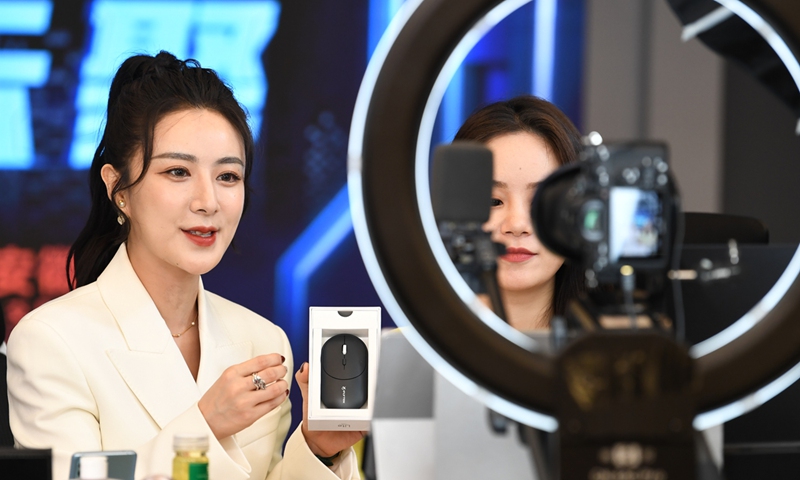Chinese political advisors and policymakers attending the ongoing two sessions have proposed tightening supervision and rectification of the livestreaming industry. Some have also suggested punishment on tax evasion and mandatory cool-off period for tipping livestreamers to ensure a sound and equitable development of the new economic model of livestreaming.
The livestreaming sector was jolted after the State Taxation Administration issued a notice last September, requiring further strengthening of taxation administration for employees in the field.
Ma Jin, a member of the National Committee of the Chinese People’s Political Consultative Conference (CPPCC) and deputy chairman of the Shanghai Municipal Committee of the China Zhi Gong Party, proposed that punishing livestreamers will serve as a wake-up call to the industry practitioners, which is key to a healthy and equitable development of the new economic model in transformation.
In regards to the punishment on leading livestreamers such as Huang Wei, nicknamed Viya, Ma told media that such punishment was necessary. With the development of the internet, particularly the development of the mobile internet, online trading and services have become a common practice. If supervision is not strengthened at this moment, it will undermine the new economic model and order that are in the process of transformation.
Ma, who also proposed to set up a blacklist system for livestreamers during last year’s two sessions, said that the frequent tax evasion cases in the livestreaming industry are associated with the loopholes in taxation that livestreamers took advantage of and exploited.
To crack down on such behaviors, Ma suggested that online trading should also abide by related laws like off-line trading does. Meanwhile, the e-commerce platforms should fulfill the supervision responsibility like shopping mall operators do to prevent tax evasion of livestreamers.
Ma’s opinion was echoed with that of renowned scriptwriter Zhao Dongling, a deputy to the National People’s Congress (NPC), who told media that despite China’s E-commerce Law and the Administrative Measures for Online Live-Streaming Marketing (for Trial Implementation) stipulating the obligations to provide tax-related information by livestreaming marketing platforms, the regulations are too general and lack operational guidance, which makes it difficult to provide sufficient guarantee for tax regulations of online livestreaming.
Thus, Zhao suggested that the State Taxation Administration should issue guidelines on information submission to different platforms according to their varied business and stipulate detailed contents, time and targets of tax-related information to be reported.
In terms of the scales and categories of livestreamers’ business, Xiao Shengfang, another NPC deputy and president of Guangdong Lawyers Association, proposed to make top-level design of the industry and conduct classified supervision according to contents.
Xiao suggested a cool-off period for tipping livestreamers who provide non-professional knowledge should be mandated and the tips can be withdrawn within three days unconditionally, whereas livestreamers who provide valueless contents and violate laws, regulations and public order and good customs should be banned and platforms and livestreamers should be held accountable for legal responsibilities.
Chinese e-commerce livestreamer Huang Wei, or Viya, recommends products during a livestream show in April, 2021. Photo: VCG




